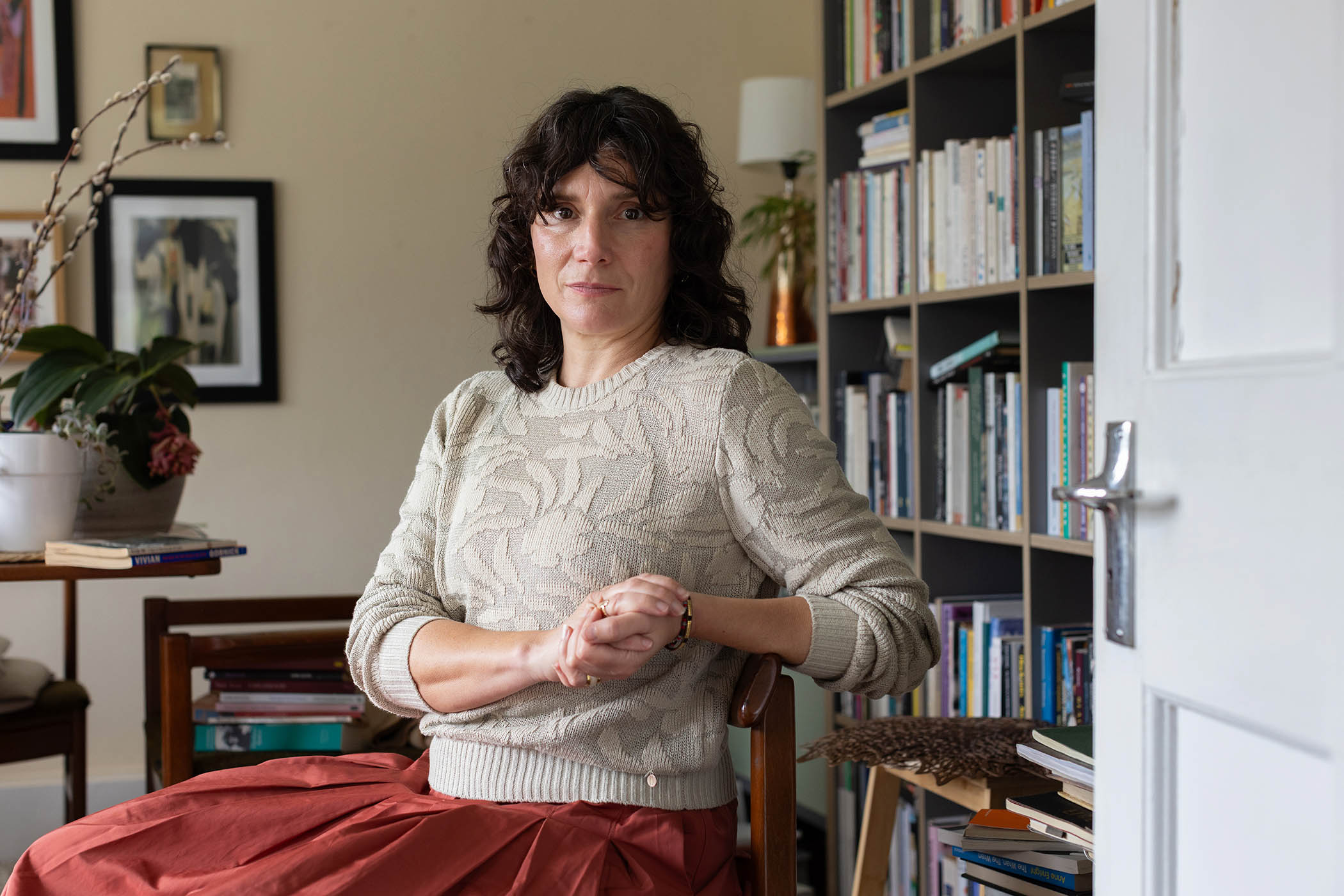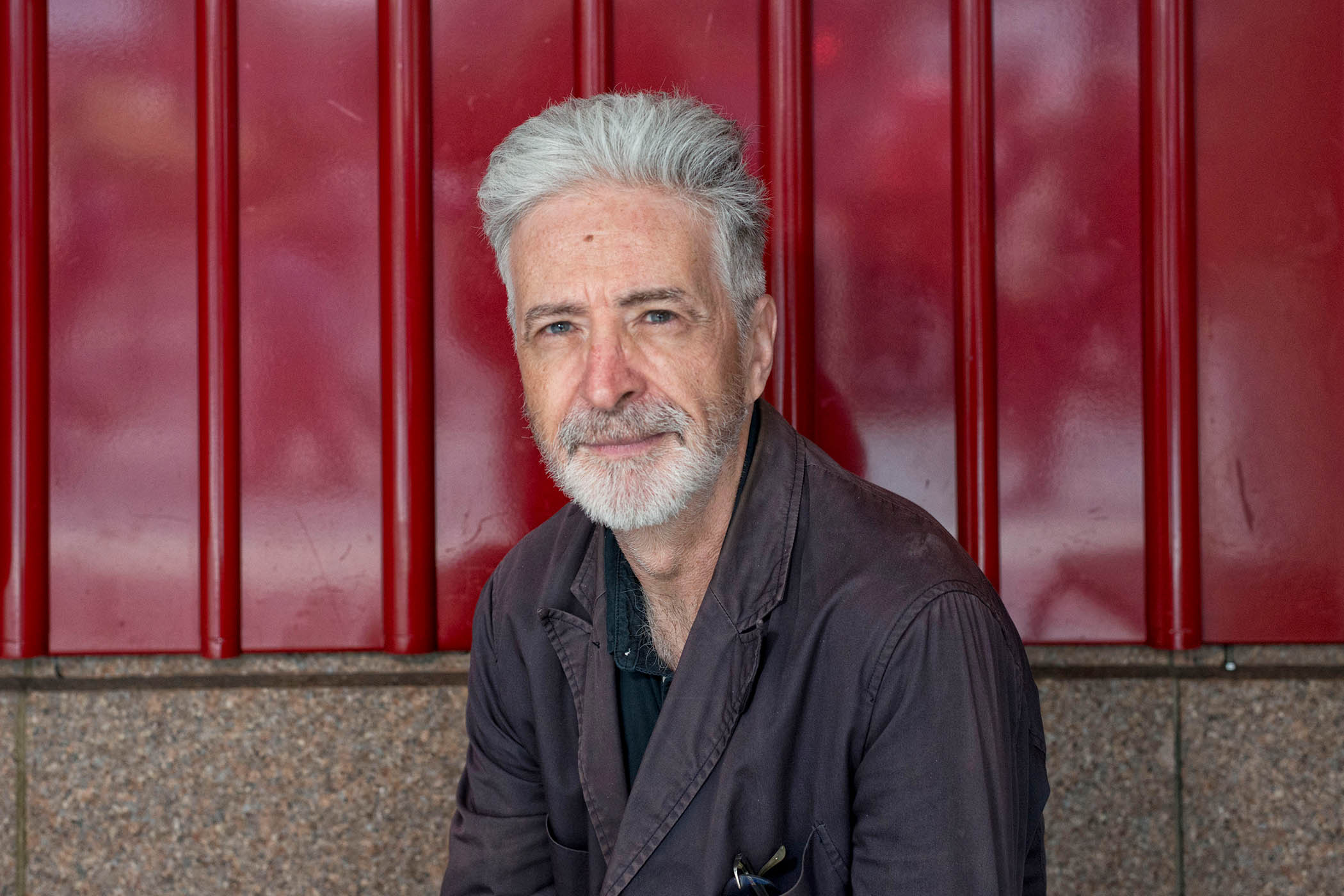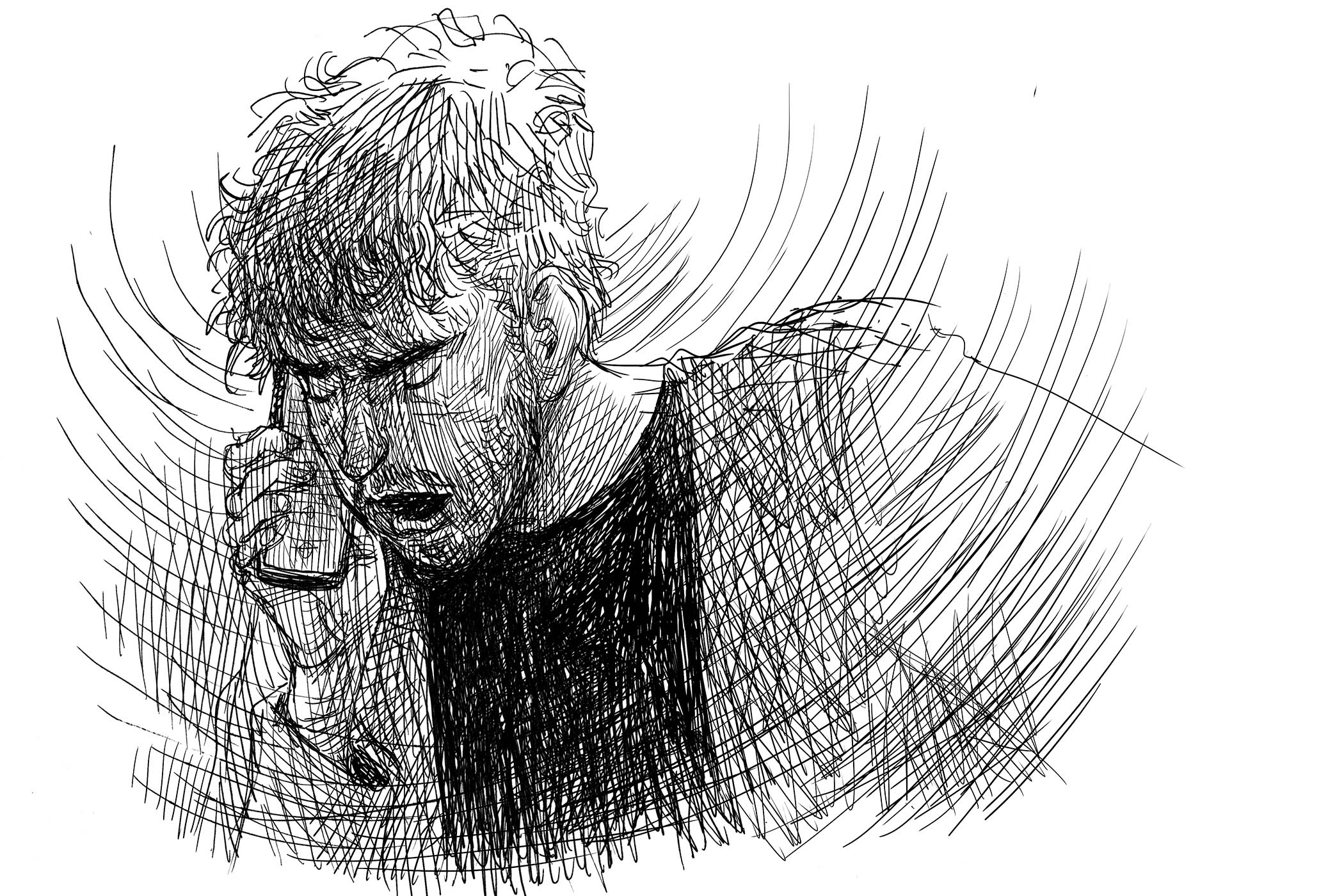Portrait by Patrick Bolger
Born in Wiltshire and based in Galway, Claire-Louise Bennett made her debut in 2015 with the short story collection Pond, following it with a novel, Checkout 19, that was shortlisted for the Goldsmiths prize in 2021. Her new novel is based loosely around a female writer’s experience of the end of a love affair with an older man who has led a very different life. Like its predecessor, Big Kiss, Bye-Bye is a sometimes confounding, always invigorating blend of the philosophical and the funny, the erudite and the earthy, with just a hint of the gothic.
Can we call this new novel a love story?
I wouldn’t necessarily call it a love story. I needed to write from within love rather than about it. A lot of the time, love is explored in its beginnings, whereas this begins when a relationship has wound down and is evolving into something else, which can be very painful to negotiate. But that’s when you really get a sense of what love is, at the end of something.
Are there other writers whose approach to intimacy has influenced you?
My favourite writers are writers who pay attention – very close attention – to the world around them. That feels like a very intimate thing. So writers such as Beckett and Virginia Woolf, Jean Rhys, Annie Ernaux, Natalia Ginzburg. Noticing human behaviour and little changes that occur and wondering about them, that’s an act of love. It’s that willingness to sit there and spend time, which is becoming scarcer and scarcer.
One of the novel’s most distinctive features is its lack of context, which creates an air of mystery.
Dating culture gives this sense of having access to information about people, but a lot of the time you don’t fully know – even if you’ve been with a person for quite a long time. You can hold a person but you might not necessarily grasp them. That’s why it was important to me that this element of mystery should be an integral part of the book – it’s an essential part of loving somebody. There’s also a kind of gothic element to the novel in my imagination.
What draws you to the gothic?
Gothic horror is all about the loosening of boundaries. In that sense it is very much like love and I think in this book there is a desire to transgress certain boundaries or for them to be dissolved by an intensity of feeling or a reaching out towards somebody. Things don’t necessarily stay in their proper place here. There’s just a general sense of it being slightly off-kilter.
How does a book typically begin for you?
I’m not necessarily led by great ideas. I feel little intimations of something new. The atmosphere, I get that first. I tiptoe around it and the sense of it builds up. There’s a lot of thinking, note-taking and reading. And sleeping – dreams are very, very helpful.
There are some potent dreams in this novel. Are you a dreamer?
I am, and it kicks in a bit more at this time of year. Someone gave me a note in a dream last night and it said three things on it – I’m still trying to remember what.
Autofiction is a term that is often applied to your work. How do you feel about it?
I always get a bit confused when the word comes up. I don’t know what the need for it was because I think people have always written from their own experience.
How do you approach the language in your novels? You tend to mix the plainspoken with the esoteric.
I think my books are always about language really. As much as books are about experiences or memories or thoughts or ideas, they’re also about language. I don’t just use it as a tool to tell something: the language is producing me as much as I’m producing it. So as much as precision I’m thinking about language in terms of sounds and textures and how they rub up against each other.
Did you grow up wanting to be a writer?
It wasn’t something I wanted to do; from what I recall I was just always doing it.
What has been your greatest literary challenge?
Form. I didn’t publish until I was in my 30s; prior to that, what I was writing either didn’t make sense or it did make sense but it was dreadful because I was using available templates. If you’re going beneath the surface of life, into this more subterranean place that is by its nature amorphous, how are you supposed to put a shape on it without compromising its essence? I was very heartened to read that form got on Beckett’s wick as well.
What lessons have you learned along the way?
I have a sense of what sort of writer I am. On the one hand it irritates me because I can see what my limits are. No one’s going to describe any of my books as timely and urgent. But as each comes along, you get more of an insight into where you’re coming from and where that might go, and then you can just really keep getting deeper and deeper into what interests you.
Is there a book that has bowled you over lately?
Dreaming of Dead People by Rosalind Belben was brilliant. It’s a life story but it’s told in various sections that don’t seem to have any relation to each other – there’s one that goes on about Robin Hood, then there’s one about masturbation. Collectively, it provides a more cohesive sense of a whole psyche than a regular life story would. Clare Carlisle’s new book, Transcendence for Beginners, is also very good.
How about a classic you’ve recently read for the first time?
Jane Eyre. I found it difficult – I just couldn’t get on board with it because of the business with Rochester’s wife. Afterwards, I reread Rhys’s Wide Sargasso Sea and it’s amazing – so upsetting to read but very powerful.
Big Kiss, Bye-Bye is published by Fitzcarraldo (£12.99). Order a copy from The Observer Shop for £11.69. Delivery charges may apply
Newsletters
Choose the newsletters you want to receive
View more
For information about how The Observer protects your data, read our Privacy Policy


